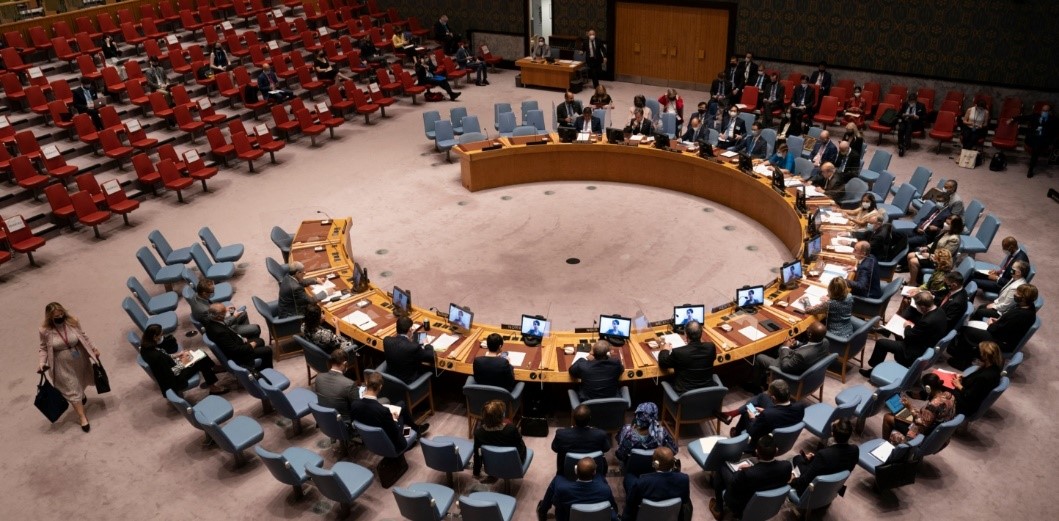More than two-thirds of the UN Security Council members demanded Monday that the Taliban rescind policies and decrees discriminating against women and girls. This includes banning girls’ education beyond sixth grade and restricting women’s rights to work and move freely.
A statement from 11 of the 15 council members condemned the Taliban’s repression since their August 2021 takeover. It called for women’s equal participation in public, political, economic, cultural, and social life, especially at decision-making levels to enhance international engagement with Afghanistan’s de facto rulers.
Guyana’s UN Ambassador Carolyn Rodrigues-Birkett delivered the statement, flanked by ambassadors from the 10 other countries, ahead of a closed council meeting on UN Secretary-General Antonio Guterres’ conference with over 25 envoys to Afghanistan on Feb. 18-19 in Doha, Qatar.
The council members welcomed the participation of Afghan civil society representatives, including women, in the Doha meeting. The Taliban, however, did not attend, with its Foreign Ministry stating participation would be “beneficial” only if recognized as the country’s sole and official representative.
Although the Taliban was absent, UN political chief Rosemary DiCarlo met with Taliban officials in Doha, according to UN spokesman Stephane Dujarric. DiCarlo also briefed council members at Monday’s meeting.
The 11 nations supporting the statement — Ecuador, France, Guyana, Japan, Malta, Sierra Leone, Slovenia, South Korea, Switzerland, the United Kingdom, and the United States — emphasized that sustainable peace in Afghanistan requires an inclusive political process and respect for all Afghans’ human rights, including women and girls.
Russia, China, Mozambique, and Algeria did not endorse the statement.
Rodrigues-Birkett said updates on the Secretary-General’s Doha meeting would be provided to the council. Discussions included consultations on appointing a special envoy for Afghanistan. She highlighted the council’s demand for Afghan women’s “equal, meaningful, and safe participation and leadership” in decision-making processes and urged the Taliban to include women in humanitarian aid planning and delivery, noting their absence hinders aid effectiveness for women, children, and the elderly.
“We welcome the participation of various Afghan stakeholders in the Doha meeting,” Rodrigues-Birkett stated, also condemning the Taliban’s “continued systemic gender discrimination and oppression of women and girls in Afghanistan.”




